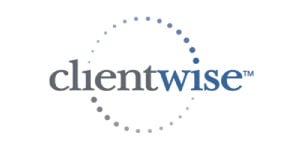The Stockdale Paradox: What is it? And how can it strengthen your year-end planning?
As we turn onto the home stretch and drive towards the finish line of 2024, you may be faced with confronting some hard truths – needing to acknowledge both internal and external current challenges while continuing to maintain steadfast confidence in your team’s ability to finish the year strongly and set the stage for long-term success.
This mindset (known as the Stockdale Paradox) is named after Admiral James Stockdale, who survived years of brutal imprisonment during the Vietnam War by balancing hope with realism. Author Jim Collins explains the Stockdale Paradox as the ability to maintain unwavering faith in eventual success while simultaneously confronting the harshest realities of your current situation. It’s a principle that can serve as a valuable guide and reminder to help ensure your team remains focused on delivering high performance, even as year-end deadlines loom.
Industry data clearly demonstrates that the last four months of the year are pivotal. Firms that execute well during this period are much more likely to enter the following year with momentum. How much better?
- According to a recent Gallup survey, highly engaged teams show 21% greater profitability and 59% lower turnover than less engaged teams.
- Another study conducted by McKinsey found that companies with a clearly defined and actively communicated corporate purpose outperform their peers in long-term value creation by up to 40%.
While some firms tend to slow down as they approach the end of the calendar year, high-performing advisory teams see this time as the ultimate opportunity to consolidate gains, refocus, and plan for the future. Despite a multitude of client needs, compliance deadlines, and year-end financial reviews requiring focused execution, it’s nevertheless an ideal time for forward-looking strategic planning – and the earlier you begin this process, the more impactful it will be.
Organizing an effective offsite strategic planning retreat
Scheduling an offsite meeting focusing on current performance and future planning will be critical to setting the stage for continued success. It’s your opportunity to realign, problem-solve, make powerful decisions about the future, and build momentum. But to get the most out of this meeting, you need to plan it out step by step thoughtfully:
-
Define the meeting’s purpose: Determine key focus areas—whether it’s solving immediate challenges, planning next year’s initiatives, or a blend of both. Make sure everyone is clear about the meeting objectives well in advance.
-
Develop pre-work: Have team members complete preparatory work in advance. This could involve gathering client feedback, reviewing performance metrics, or analyzing upcoming market trends. The more information team members have, the more engaged they’ll be in meaningful discussions.
-
Circulate an agenda: Sharing a well-structured agenda ahead of time (outlining who will lead each section, the key decisions that need to be made, and the problems that must be addressed) will help reduce ambiguity and keep the meeting on track.
-
Clarify roles: ensure everyone involved knows their responsibilities. This includes who will facilitate discussions and who will present and lead follow-up actions. Clear roles prevent overlap and ensure efficient use of time.
-
Define success metrics: establish clear performance goals for the meeting itself, including key decisions that must be made, problems that need to be solved, future opportunities to prepare for, and a plan of action for the weeks to come.
Ensure your offsite involves key leaders who influence strategy and execution (i.e., owners, next-generation partners, heads of departments, lead advisors, and your COO, CPO, or CFO). This will help provide a well-rounded view of the firm’s current standing, future opportunities, and potential obstacles. Lastly, ensure that every member of your organization has a voice in designing the future. Team feedback and co-creation drives performance results, culture, and engagement.
Leverage data for better planning
Before entering your offsite meeting, equip your team with the necessary data required to make more informed decisions. Data-driven decision-making is a hallmark of successful teams, and this final stretch of the year is an opportune time to use that data strategically. Pertinent data may include:
-
Performance metrics: How is your firm tracking against its goals? What strategies have worked well, and where are there opportunities for improvement?
-
Client feedback: Gather feedback to identify any common client pain points and areas where service delivery could be improved.
-
Market trends: What market shifts or industry changes could impact your business in the coming months?
Equip your team with this information in advance to help ensure that decisions made in your offsite meeting are well-informed, strategic, and backed by tangible data. Also, take time to define your desired meeting outcomes in advance. These could include which strategic decisions must be finalized, which obstacles prevent optimal performance, and how to resolve them. Every initiative you discuss should have a clear owner, timeline, and deliverables.
How to communicate more effectively
Before planning for the future, take time first to review your firm's vision, mission, and values. High-performing teams thrive when they remain connected to a greater purpose, so strive to ensure that all your strategic decisions align with these three guiding principles:
-
Mission: Why does your firm exist, and what precisely are you working to achieve for your clients and your team?
-
Vision: What’s your long-term goal, and how do you see your firm positively impacting your community or the planning industry?
-
Values: What guiding principles dictate how your team operates internally and externally?
Remember that effective team communication is the backbone of any high-performing advisory firm. However, when CEOs repeatedly hear the same concepts, like mission, vision, and values, and begin to take their importance for granted, it's often referred to as "message fatigue" or "cognitive complacency." This occurs when the repetition of critical ideas makes them dismissed as routine or trivial despite their foundational significance. It’s important to assess whether this might be true for your team.
By leveraging newer communication tools, you can help team members understand each other better and remain connected to the firm's MVV. These tools will also help you facilitate smoother collaboration and conflict resolution. Some tools you may wish to explore include:
-
DISC Assessment: focuses on behavioral differences and helps team members understand how to adapt their communication styles to better work with one another.
-
Kolbe Index: measures instinctive strengths and helps identify how individuals take action naturally.
-
Myers-Briggs Type Indicator (MBTI): provides insights into how team members perceive the world and make decisions, fostering a better understanding of diverse working styles.
-
Culture Index: Identify strengths and weaknesses, which helps you hire and manage team members more effectively based on their communication and work preferences.
-
CliftonStrengths (formerly StrengthsFinder): better understand an individual’s strengths and how they can be leveraged for greater team cohesion and productivity.
The key here is that it’s less about the specific tools than about applying them regularly to ensure ongoing alignment and understanding within your team.
Finishing strong
The final months of the year are a critical period for every firm as you strive to balance current execution with future planning to drive performance. By applying the Stockdale Paradox – confronting brutal facts while maintaining belief in a bigger future – you’ll ensure your team is well-poised to finish strong and enter 2025 with much momentum. So, schedule your offsite meeting, gather your data, and revisit your communication tools to strengthen team dynamics now, to set the foundation for long-term growth and success.
Coaching Questions:
-
How can your team apply the Stockdale Paradox to balance the harsh realities of year-end challenges with a confident outlook for long-term success as you move into 2025?
-
What steps can you take to ensure that your strategic planning offsite addresses current issues and sets a clear path for your firm's future growth and adaptability?
-
How can data-driven decision-making and enhanced communication tools improve your team’s engagement and overall performance during the crucial final stretch of the year?
-
How can your firm realign with its mission, vision, and values to avoid message fatigue and ensure every team member feels connected to a shared purpose as you plan for the future?
About ClientWise LLC
ClientWise is the premier business and executive coaching firm working exclusively with financial professionals. We specialize in helping clients optimize growth and maximize revenue by engaging as a knowledgeable partner in accomplishing specific and significant business results. Our full-service coaching program empowers financial advisors, wholesalers, managers and executives to enhance performance through customized, action-oriented solutions based on each client’s specific vision and situation.
Our certified coaches are members of the International Coach Federation (ICF). They adhere to ICF’s strict code of ethics and have the experience and insight to work with you on the unique challenges and opportunities you face each day.
Drawing from an in-depth knowledge of the financial industry, ClientWise’s mission is to professionally develop industry leaders and consistently raise the bar for industry service, commitment and integrity. Simply put, our singular focus is to help you get clear, get focused, and get results.
Topics: Business Planning



